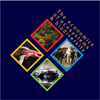
The Economics of Ecosystems and Biodiversity
www.teebweb.org
The Economics of Ecosystems and Biodiversity study is an international initiative to draw attention to the global economic benefits of biodiversity. Its objective is to highlight the growing cost of biodiversity loss and ecosystem degradation and to draw together expertise from the fields of science, economics and policy to enable practical actions moving forward. TEEB aims to assess, communicate and mainstream the urgency of actions through its four deliverables; D0: science and economic foundations, policy costs and costs of inaction, D1: policy opportunities for national and international policy-makers, D2: decision support for local administrators, D3: business risks, opportunities and metrics and D4: citizen and consumer ownership.
Subject(s): Convention on Biological Diversity; Economics, Trade and Incentive Measures; International Year of Biodiversity - 2010; Business and Biodiversity

ALDEBARAN Marine Research & Broadcast
aldebaran.org
Auf Deutsch siehe unten ALDEBARAN - Linking Science and Media: We proliferate and broadcast knowledge about the ocean as the most important and multifaceted, but simultaneously the least explored habitat on our blue planet earth. Since the 5th of June 1992, the research and media vessel ALDEBARAN from Hamburg’s environmental cross-media agency of the same name travels the oceans as the independent voice of the sea. On board the ALDEBARAN, scientists and journalists are, literally and figuratively, “in the same boat” developing strategies for appealing information processing for various electronic media and the public.
Deutsch Crossmedia-Agentur für Wissenschaft und Me€hr - Wir vermehren Wissen über den Lebensraum Meer und Wasser. Die Ozeane sind der wichtigste und vielfältigste, aber auch gleichzeitig der unbekannteste Lebensraum auf dem blauen Planeten Erde. Seit dem 5. Juni 1992 ist das Medien- und Forschungsschiff ALDEBARAN der gleichnamigen Organisation für Umweltkommunikation aus Hamburg als unabhängiges „Sprachrohr für die Meere“ unterwegs. An Bord der ALDEBARAN treffen Wissenschaftler auf Journalisten und entwickeln "im gleichen Boot" Strategien um Informationen für die elektronischen Medien und die Öffentlichkeit attraktiv aufzubereiten. Wir vermehren Wissen über den Lebensraum Meer und Wasser.
Current activities:
Newsletter:
Subject(s): United Nations Decade on Biodiversity - 2011-2020

Aquazoo / Löbbecke - Museum
www.duesseldorf.de/aquazoo
In the Aquazoo / Löbbecke - Museum the content of a zoo is consistently linked with the content of a natural history museum. Each of the 25 rooms has a particular topic. 450 different animal species in 80 aquariums and 60 terrariums, a tropical hall and more than 200 skeletons and models can be explored. Educational events focus on the observation of animals, ecology and biodiversity; numerous materials from the collections and living animals are presented hands-on. The institute is member of WAZA, ICOM, EAZA and VDZ and is as such committed to the conservation of biological diversity.
Subject(s): United Nations Decade on Biodiversity - 2011-2020
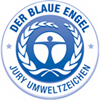
Blue Angel
www.blauer-engel.de/en
The Blue Angel is a world wide eco-label since 1978.Eco-friendly products and services selected by an independent jury in line with defined criteria. The Blue Angel is awarded to companies as kind of a reward for their commitment to environmental protection.
Subject(s): Business and Biodiversity

CLIMATE 2010, On-line Climate Change Conference
www.climate2010.net
From 1-7 November 2010, the worldwide scientific online climate conference CLIMATE 2010 takes place for the third time, focusing on "Climate Change and the Sustainable Management of Water Resources". CLIMATE 2010 is being organized in cooperation with UNEP, UNESCO, WMO, IPCC, FAO and other world bodies. It represent an opportunity to be part of this worldwide climate-friendly event and use this unique opportunity to present and discuss work with researchers, practitioners, NGOs and the interested public from all around the world.
Subject(s): Climate Change and Biodiversity

COLABORA
www.suscon.net
COLABORA was founded 2006 by the agronomist and journalist Bernward Geier, who worked before 18 years as Director of the organic world umbrella organisation IFOAM (International Federation of Organic Agriculture Movements). COLABORA is working internationally and focuses on environment issues, sustainability in all its facets as well as on ecological agri- and food culture. The three main working fields are:
- Communications (film projects, print media, lectures and moderation)
- Events (e.g. conferences, lecture tours of VIP Speakers and cultural events)
- Consultancy (e.g. bio-dynamic project in Greece, organic marketing, One World Award)
Let’s work together
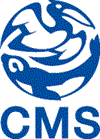
Convention on Migratory Species - Bonn Convention
www.cms.int
The CMS aims to conserve terrestrial, marine and avian migratory species throughout their range. It is an intergovernmental treaty, concluded under the aegis of the United Nations Environment Programme, concerned with the conservation of wildlife and habitats on a global scale. Since the Convention's entry into force, its membership has grown steadily to include over 100 Parties from Africa, Central and South America, Asia, Europe and Oceania. The Convention was signed in 1979 in Bonn (hence the name) and entered into force in 1983.
Subject(s): Governance, Law and Policy


Deutsche Gesellschaft für Technische Zusammenarbeit (GTZ) GmbH - Germany
www.giz.de
The GIZ is an international cooperation enterprise for sustainable development with worldwide operations. GIZ promotes complex reforms and change processes, often working under difficult conditions. Its corporate objective is to improve people’s living conditions on a sustainable basis.
Subject(s): Scientific and Technical Cooperation; Economics, Trade and Incentive Measures; Health and Biodiversity; Biodiversity for Development

EuroNatur Foundation
www.euronatur.org
The EuroNatur Foundation is a non-profit organisation located in Germany which stands up for the conservation of the European nature heritage on many different levels, e.g. via special species protection projects, renaturation measures, and site protection as well as political lobbying activities or environmental education. EuroNatur projects are long-term and often cross-border projects aiming not only at the protection of nature, but also at an ecological development of the respective rural areas.

EUROPARC Federation
europarc.org
The Voice of Europe's Protected Areas. We represent over 400 members in 36 countries, who themselves manage the green jewels of Europe's land, sea, mountains, forests, rivers and cultural heritage. Nature knows no boundaries and we therefore facilitate international co-operation in all aspects of protected area management to further and improve and conserve our shared natural inheritance. We endeavour to exchange expertise, experience and best practise as well as collaborate with others to ensure the value and meaning of protected areas is at the heart of Europe.
Subject(s): Protected Areas / In-Situ Conservation


Federal Environment Agency - Germany
www.umweltbundesamt.de
The objectives are : to provide scientific support to the Federal Government (e.g.. the Federal Ministries for Environment; Health; Research; Transport, Building and Urban Affairs);
- the mplementation of environmental laws (e.g. emissions trading, authorisation of chemicals, pharmaceuticals, and plant protection agents)
- and information of the public about environmental protection.
Subject(s): Agricultural Biodiversity; Chemicals and Pollution; Climate Change and Biodiversity; Health and Biodiversity; Governance, Law and Policy; Inland Waters Biodiversity; Transfer of Technology and Cooperation; United Nations

Genbank Bayern Arche – Genbank für Wildpflanzensaatgut
www.genbank.uni-regensburg.de
Biodiversity’s greatest threats in Central Europe are changing land use, eutrophication, emissions and the unpredictable influence of climate change. This calls for action in order to preserve species’ diversity and species’ genetic variation. In this context the Free State of Bavaria (Germany) initiated a seed genebank especially for rare and endangered wild plant species at the University of Regensburg. The objective of this project is to collect plant seeds from natural habitats in Bavaria and to maintain their viability through long-term storage at -18°C. High levels of genetic variation within all collections are intended to make sure that species can adapt to their continuously changing environment. Through cooperation with the Botanical Garden of Regensburg the public gains access to a growing number of rare and endangered plants.
Subject(s): United Nations Decade on Biodiversity - 2011-2020

German League for Nature and Environment
www.dnr.de
The German League for Nature and Environment is the umbrella organization of German conservation and environmental protection associations (DNR) e.V.. It currently has 98 member organizations which together represent over five million individual members. The DNR addresses the growing environmental problems and coordinates activities of it member organizations regarding important environmental issues of regional, national and global scale.

Germany's Renewable Energy Agency
www.unendlich-viel-energie.de/en/homepage.html
Since 1 May 2008, the information campaign for renewable energy has had an organisational home; this is the Agency for Renewable Energy. The successful "Germany has endless energy" campaign with its patron Prof. Dr. Klaus Töpfer is retained. The "Germany has endless energy" campaign is supported by the Renewable Energies Agency ("Agentur für Erneuerbare Energien e. V"). The agency is supported by companies and associations in the renewable energy industry and the Federal Ministry for Environment, Nature Conservation and Nuclear Safety as well as the Federal Ministry of Food, Agriculture and Consumer Protection. The task of the Renewable Energies Agency is to communicate the most important advantages of a sustainable power supply on the basis of renewable energy. Above all, these are: Security of supply, innovations, increase in employment, export potential, permanent cost-cutting power supply, climate protection and conservation of resources. The Agency for Renewable Energy works throughout Germany, on a cross-party and cross-society basis.

Global Compact Network Germany
www.globalcompact.de
The Global Compact Network Germany is an active learning and dialogue platform for the implementation of the ten Global Compact principles. Biodiversity is one of the priorty issues of the network in Germany in 2010. The German Global Compact network seeks to promote multi-stakeholder dialogue and constructive cooperation between government, business and other sectors of society.
Subject(s): Business and Biodiversity

Global Nature Fund
www.globalnature.org
Global Nature Fund is a non-profit, private, independent international foundation for the protection of environment and nature. The headquarters are located in Radolfzell at Lake Constance, Germany. GNF was founded in 1998 with the objective to foster the protection of nature and environment as well as animals. In 1998 the Living Lakes network has been initiated by the GNF foundation, a global network of environmental partner organisations striving for the protection of lakes and wetlands worldwide.

HIT Umwelt- und Naturschutz Stiftungs-GmbH
www.hit-umweltstiftung.de
In Central Europe there is very little space left for wildlife. Here the landscape is dominated by industry and agriculture. Nonetheless, people in this densely populated region have developed a strong environmental consciousness. Many volunteers spend their energy on nature conservation projects. The HIT Environment Fund supports this precious commitment to nature conservation by funding projects in the areas of biotope conservation, species conservation and environmental education. One focus is set on migratory species e.g. by advancing the re-introduction of allis shad, houting and salmon to the River Rhine (Germany, The Netherlands) and the stabilisation of the last large allis shad population in France. Other projects are the renaturation of rivers at the German-Dutch border, which tends to support the critically endangered European eel and the human-led migrations of the Northern Bald Ibis to Italy.

IFOAM - International Federation of Organic Agriculture Movements
www.ifoam.org
Organic Agriculture is practiced by 1.4 million producers on 35 million hectares of land in over 150 countries. It contributes to biodiversity by prohibiting the clearance of primary ecosystems, integrating high levels of natural biodiversity and farm species into the farming system and by avoiding toxic chemical inputs. Ecological rather than chemical intensification protects and enhances ecosystem services to regulate pest and disease, mitigate climate change, optimally cycle nutrients, build soils and retain soil water.
As the umbrella organization for the international Organic Agriculture movement and an observer to the Convention on Biological Diversity, IFOAM is providing input into the UNEP Economics of Ecosystems and Biodiversity report for local policy makers. IFOAM is also a participating partner in this year’s biodiversity focused SuSCon conference, developing new material on the effective role of Organic Agriculture in mitigating biodiversity loss and will hold a series of events around the globe to mark the international day of biodiversity - including the launch of position papers on seed and smallholder farms.
Biodiversity leaflet -
en -
es -
fr -
zh Biodiversity brochure -
enSubject(s): Agricultural Biodiversity

Institute for Biodiversity - Network e.V.
biodiv.de/en/biodiv-infothek/cbd-research-needs.html
The Institute for Biodiversity - Network e.V. (IBN), a German based NGO, updates the list of research needs expressed in CBD decisions after each COP in behalf of the German Federal Agency for Nature Conservation.
These needs are grouped according to the CBD thematic work programmes and crosscutting issues. In further projects IBN does consultation work and international workshops on topics like e.g. access and benefit sharing or integration of indigenous and local knowledge into CBD and IPBES and does capacity building for scientists, students and other stakeholders. National and international conservation projects are another field of action of our network. IBN was founded in 1990 and is an observer to CBD since the convention entered into force.
Subject(s): Access to Genetic Resources and Benefit-sharing; Traditional Knowledge, Innovations and Practices - Article 8(j); Research and Science

International Forestry Students’ Association
www.ifsa.net
The International Forestry Students’ Association (IFSA) is a non political and not for profit organisation of tertiary level forestry students around the world. IFSA is dedicated to global cooperation among students of forest sciences in order to broaden knowledge and understanding to achieve a sustainable future for the world’s forests. The association provides a platform for students to enrich their formal education, promote cultural understanding and gain practical experience with global perspectives. Membership is comprised by currently 78 Local Committees of students in 48 countries.
Subject(s): Forest Biodiversity
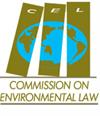
IUCN Environmental Law Centre (ELC)
www.iucn.org/about/union/commissions/cel
Since 2003, with the financial support of the German Federal Ministry for Development Cooperation (BMZ), the ELC carries out a project on ABS whose centerpiece is a series of publications, the “ABS series”, providing intensively researched expert analysis by internationally respected authors and contributors on key issues of ABS under the CBD.
Subject(s): Access to Genetic Resources and Benefit-sharing; Governance, Law and Policy

Kölner Zoo
www.koelnerzoo.de
Education is a fundamental role of the modern zoo and aquarium and a key mission area that all EAZA members must be actively engaged in, whatever their size or resources. The overarching goal of education in EAZA institutions is, beside the classical education, to contribute to the conservation of a viable and functioning biodiversity, a biodiversity that provides humanity with the air we breathe, the food we eat and the materials with which we build and power our homes. All education in zoos and aquariums contributes to an Education for Sustainable Development.
The lesson about living animals includes technical and biological, as well as social and cultural aspects. Through targeted observations and learning with all senses, students can get insights into the biological basis. Through the study of the living animal, its needs, achievements and adaptations, its behaviour, habitat, its development, ecological importance, vulnerability and its conservation the students will develop a better understanding of nature. The students will feel themselves part of nature and understand, that an intact nature is the base of human life.
Subject(s): United Nations Decade on Biodiversity - 2011-2020


The Federal Ministry for Economic Cooperation and Development - Germany
www.bmz.de/en/issues/Environment
Development cooperation is seen as global structural and peace policy. It aims to help resolve crises and conflicts in a peaceful manner. It aims to help ensure that scarce resources are more equitably shared, and that our environment is preserved for coming generations. And it aims to help reduce global poverty.
Subject(s): Business and Biodiversity; Communication, Education and Public Awareness; Climate Change and Biodiversity; Health and Biodiversity; Governance, Law and Policy; Biodiversity for Development; Protected Areas / In-Situ Conservation; Cooperation and Partnerships


The German Federal Nature Conservation Agency (BfN) - Germany
www.bfn.de
The German Federal Nature Conservation Agency (BfN) is Germany’s central scientific authority for both national and international nature conservation. The Agency reports to the German Environment Ministry (BMU) and has key enforcement functions under international species conservation agreements, marine conservation law, the Antarctic Treaty and the German Genetic Engineering Act.
Subject(s): Cities and Biodiversity; Endangered Species; Genetic Use Restriction Technologies; Governance, Law and Policy; Marine and Coastal Biodiversity; Polar Biodiversity

The Secretariat of the African-Eurasian Migratory Waterbird Agreement (AEWA)
www.unep-aewa.org
AEWA is an independent intergovernmental treaty concluded under the aegis of the Convention of Migratory Species (CMS) focusing on the conservation of migratory waterbirds. AEWA works towards halting the loss of migratory waterbird species and their habitats within its Agreement Area across Europe, parts of Asia and Canada, the Middle East and Africa.
The Secretariat of the African-Eurasian Migratory Waterbird Agreement (AEWA) takes the lead in organizing World Migratory Bird Day, which is a global initiative devoted to celebrating migratory birds and for promoting their conservation worldwide. This year’s theme for the event is “Save migratory birds in crisis – every species counts!” which is closely linked to the International Year of Biodiversity (IYB).

Tiere-MN.de
www.tiere-mn.de
Tiere-MN.de is a lexicon with more than 730 mammals, birds and reptiles. The texts from the animals are with many pictures and systematic arranged.
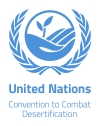
United Nations Convention to Combat Desertification
www.unccd.int
The Convention offers new hope in the struggle against desertification. Over the past two decades, the problem of land degradation in dryland regions has continued to worsen. The Convention promotes a fresh new approach to managing dryland ecosystems and -- just as important -- to managing development aid flows.
Subject(s): Forest Biodiversity; Traditional Knowledge, Innovations and Practices - Article 8(j); Dry and Sub-Humid Lands Biodiversity

United Nations Framework Convention on Climate Change
www.unfccc.int
Over a decade ago, most countries joined an international treaty -- the United Nations Framework Convention on Climate Change (UNFCCC) -- to begin to consider what can be done to reduce global warming and to cope with whatever temperature increases are inevitable. More recently, a number of nations approved an addition to the treaty: the Kyoto Protocol, which has more powerful (and legally binding) measures.
Subject(s): Forest Biodiversity; Research and Science; National Reports

World Future Council
www.worldfuturecouncil.org
The World Future Council (WFC) consists of up to 50 respected personalities from all five continents. They come from governments, parliaments, the arts, civil society, science and the business world. Together they form a voice for the rights of future generations. The World Future Council is a charitable foundation dependent on donations. The World Future Council Foundation is a registered charity in Hamburg, Germany where its head office is located. Additionally, we have staff working in Brussels, London, Washington and Addis Ababa. The World Future Council works to safeguard the rights of future generations. Our aim is to pass on a healthy planet and just societies to our children and grandchildren.
Future Policy Award Ceremony 2010 Report:
Future Policy Award 2010 (pdf)

Youth-Leader
www.youth-leader.org
An introduction to Youth Leadership as a new form of youth engagement for creating a sustainable civilisation. With inspirational stories, videos, media, methods, action tools and support services for introducing and practicing it to schools, civil society, youth clubs, with your friends, parents, grannie and president. This read may change your view of the world, and then - your path. Get ready to be surprised! Young people are changing the world more than ever before, and this is truly Good News!
Youth Leader MagazineSubject(s): United Nations Decade on Biodiversity - 2011-2020

Zoo Landau in der Pfalz
www.zoo-landau.de
Zoo Landau in Germany considers itself as an active partner in the worldwide protection of nature and species. The "World Zoo and Aquarium Conservation Strategy” proves itself as a central guideline for the development of our zoo towards a "center for the protection of nature and species as well as for environmental education". Landau Zoo takes part in 21 species conservation breeding programmes one of which is coordinated by our zoo. Further, all six international in-situ conservation projects initiated or promoted by our zoo are carried out in biodiversity hotspot regions or within centers of endemism of the world.
Subject(s): United Nations Decade on Biodiversity - 2011-2020